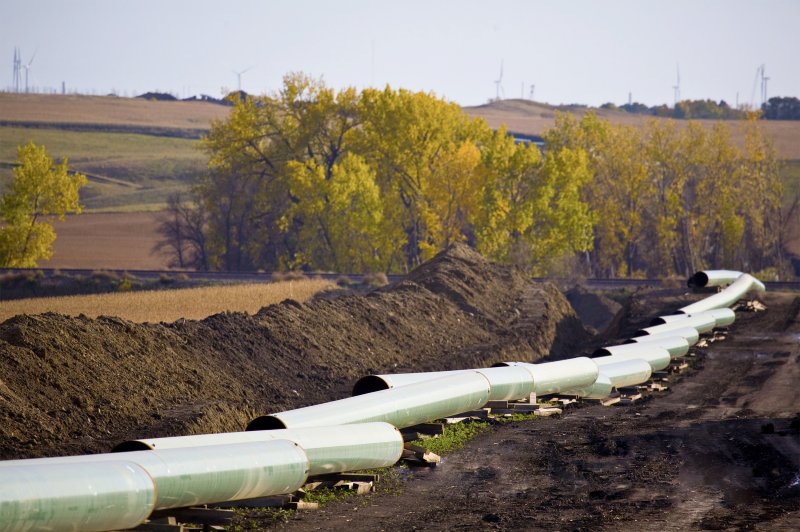Shipper commitments are fluid at this point for the long-awaited Keystone XL project from oil-rich Alberta. File photo courtesy of TransCanada
Nov. 10 (UPI) -- Though market momentum is moving in favor of the project, progress on Keystone XL depends on overcoming some level of reluctance, an analyst said.
Pipeline company TransCanada secured a long-awaited permit from the U.S. government this year to advance its cross-border Keystone XL project to the U.S. Gulf Coast. In addressing third quarter performance, the company said it had about 500,000 barrels of oil per day committed to the pipeline, which is about 60 percent of the total design capacity.
A decision drafted in 2015 by the State Department under U.S. President Barack Obama said there were questions about the necessity for additional North American pipeline capacity given uncertainties about the future growth of Canadian oil sands production.
"Long-term trends that drive the investment decisions of oil-sands producers are difficult to predict," the State Department's decision read. "Since production remains uncertain post 2018, the corresponding amount of transportation infrastructure required also remains uncertain."
In its quarterly statement, TransCanada said it was updating shipping contracts and anticipated modifications because new clients could come on board, while others reduced commitments.
"We anticipate commercial support for the project to be substantially similar to that which existed when we first applied for a Keystone XL pipeline permit," the company stated.
Lower crude oil prices in 2015 crimped spending in the energy sector and starved economies like Canada's that depend heavily on oil for revenue. In terms of cost, the State Department's analysis from 2015 said most Canadian pipeline projects would break even with oil holding steady at between $65 and $75 per barrel.
Brent crude oil was $64 per barrel in early Friday trading.
Sandy Fielden, the director of research, commodities and energy at Morningstar, told UPI that TransCanada will commit to the project if shippers commit to the project, adding the company might be cautious about upsetting its client base after cancelling its Energy East oil pipeline project meant to feed eastern Canadian markets.
Fielden said the overall market outline is improving for Canada, but producers are also nervous about making any sort of commitment.
"The whole thing is kind of a chicken and egg saga, with producers reluctant to pull the trigger and TransCanada scared to invest without their support," he said.
The State Department under President Donald Trump said in its permitting decision the break-evens for Canadian oil projects remained the same, but the sector in general has proven itself to be resilient in the low-price cycle. The ability of Canadian producers to sustain production during a period of lower oil prices led the U.S. government to "have confidence" that more oil pipeline infrastructure was needed.
Dan McTeague, an analyst with GasBuddy who monitors pipeline developments in Canada, said the Keystone XL commitments will likely come through.
"There's a market for heavy Canadian crude oil, which is making its way to the Gulf Coast by hook or by crook," he said.















